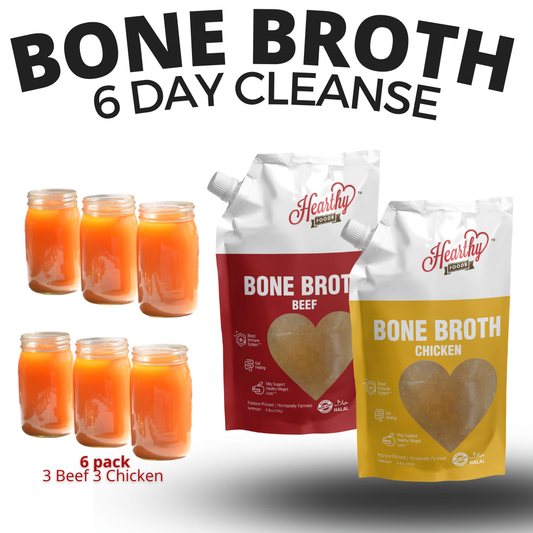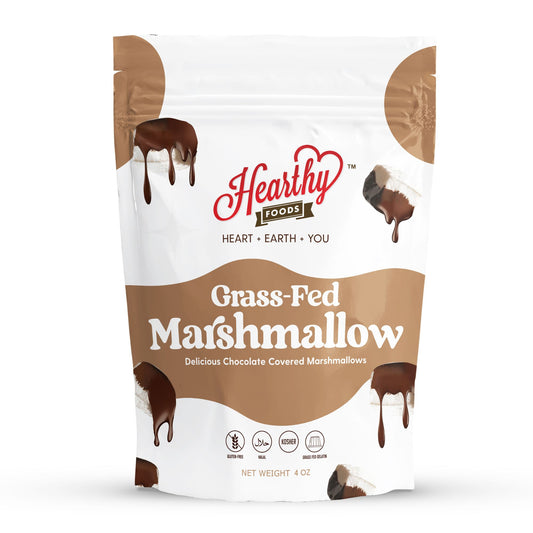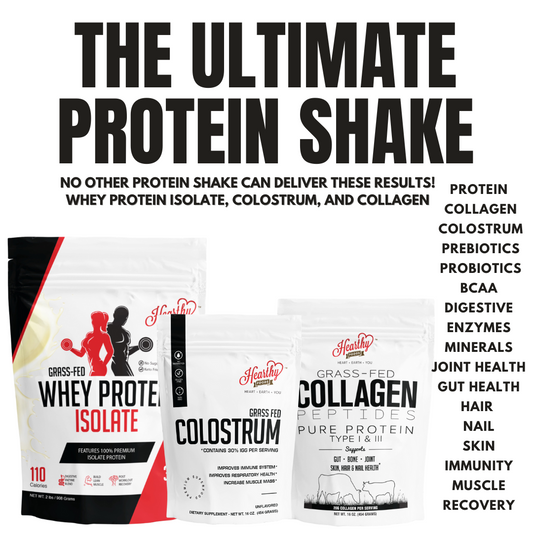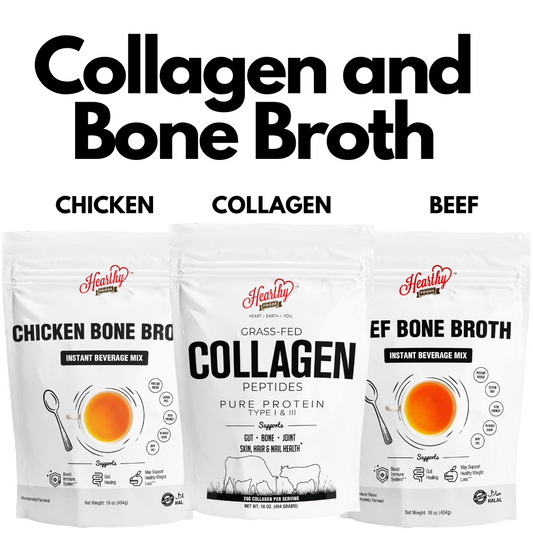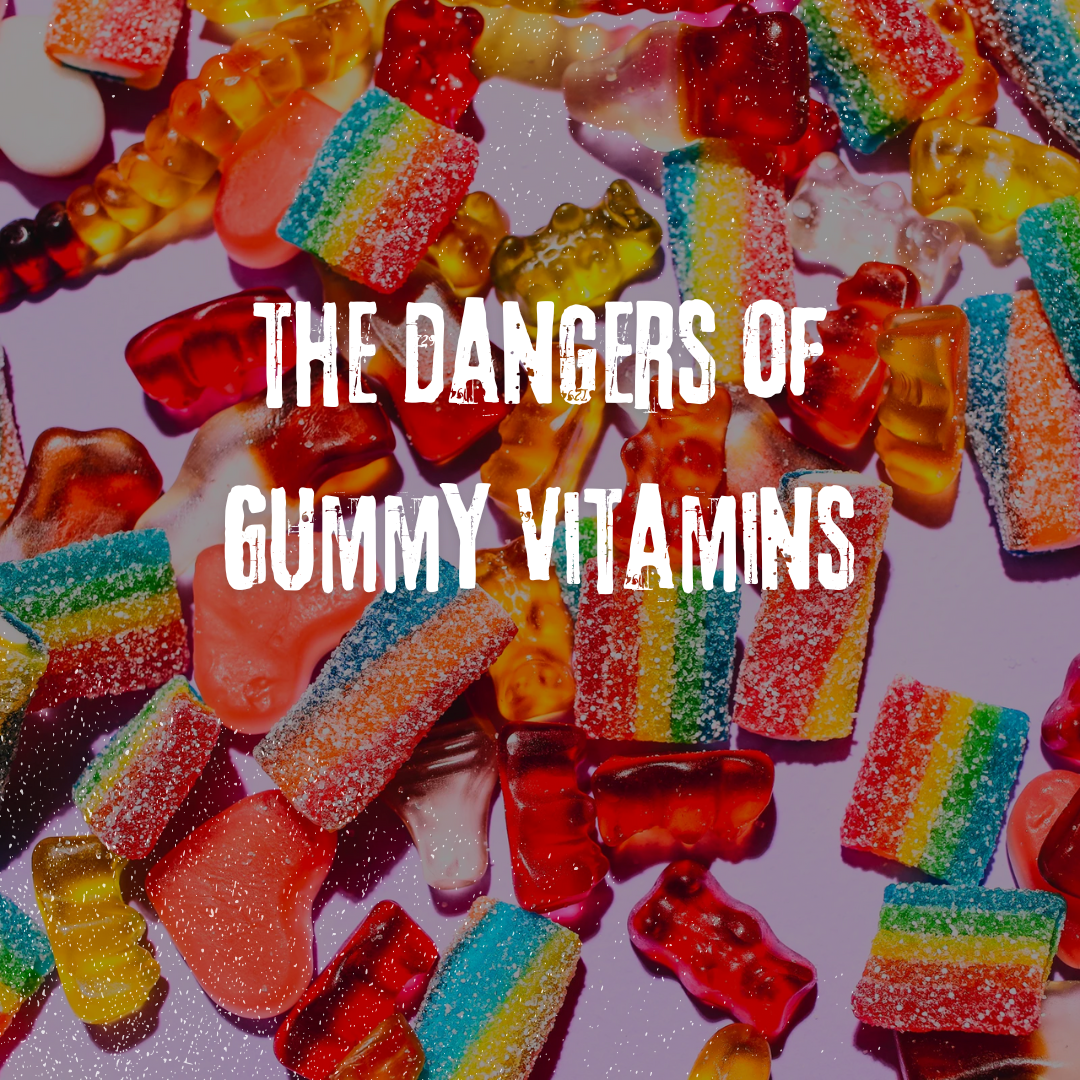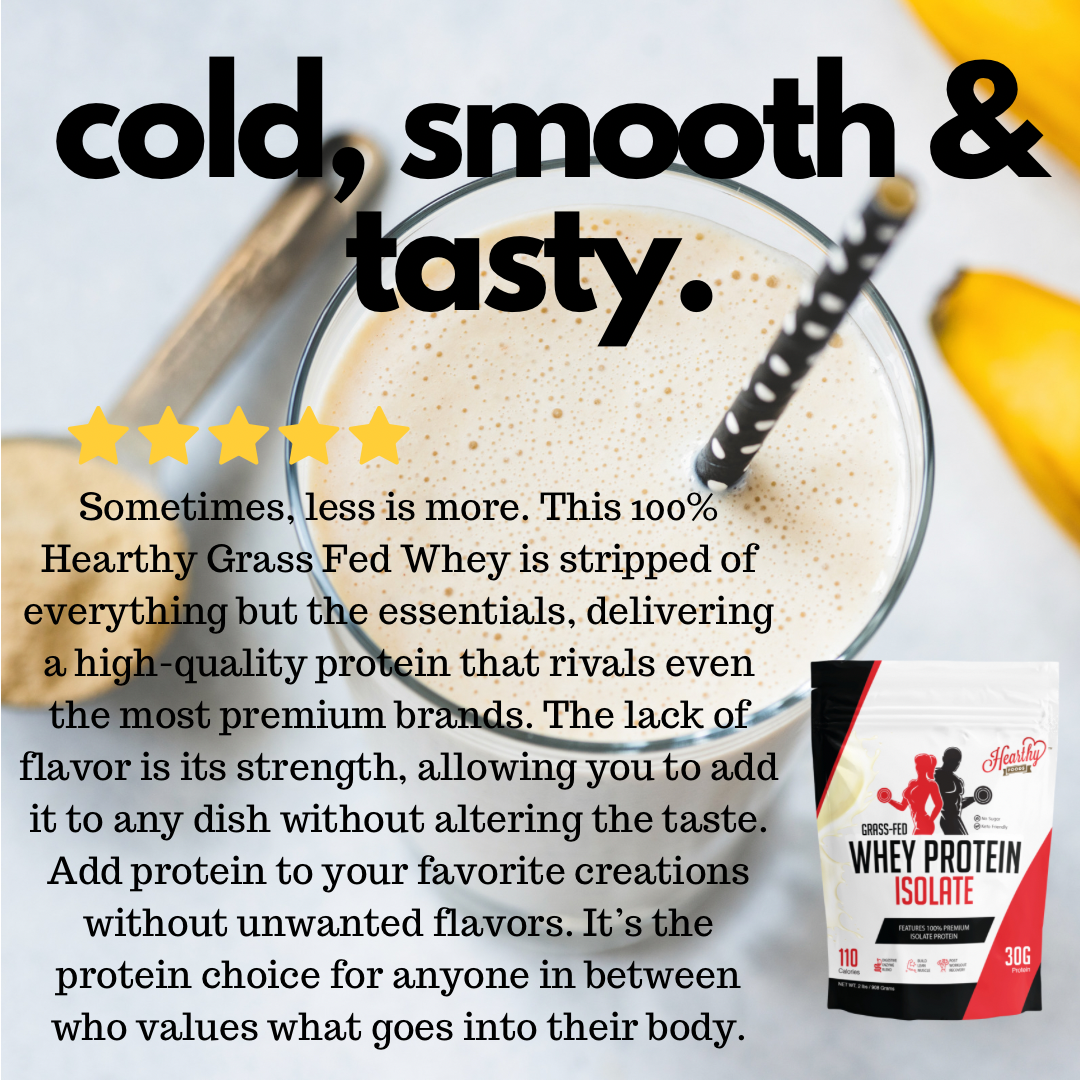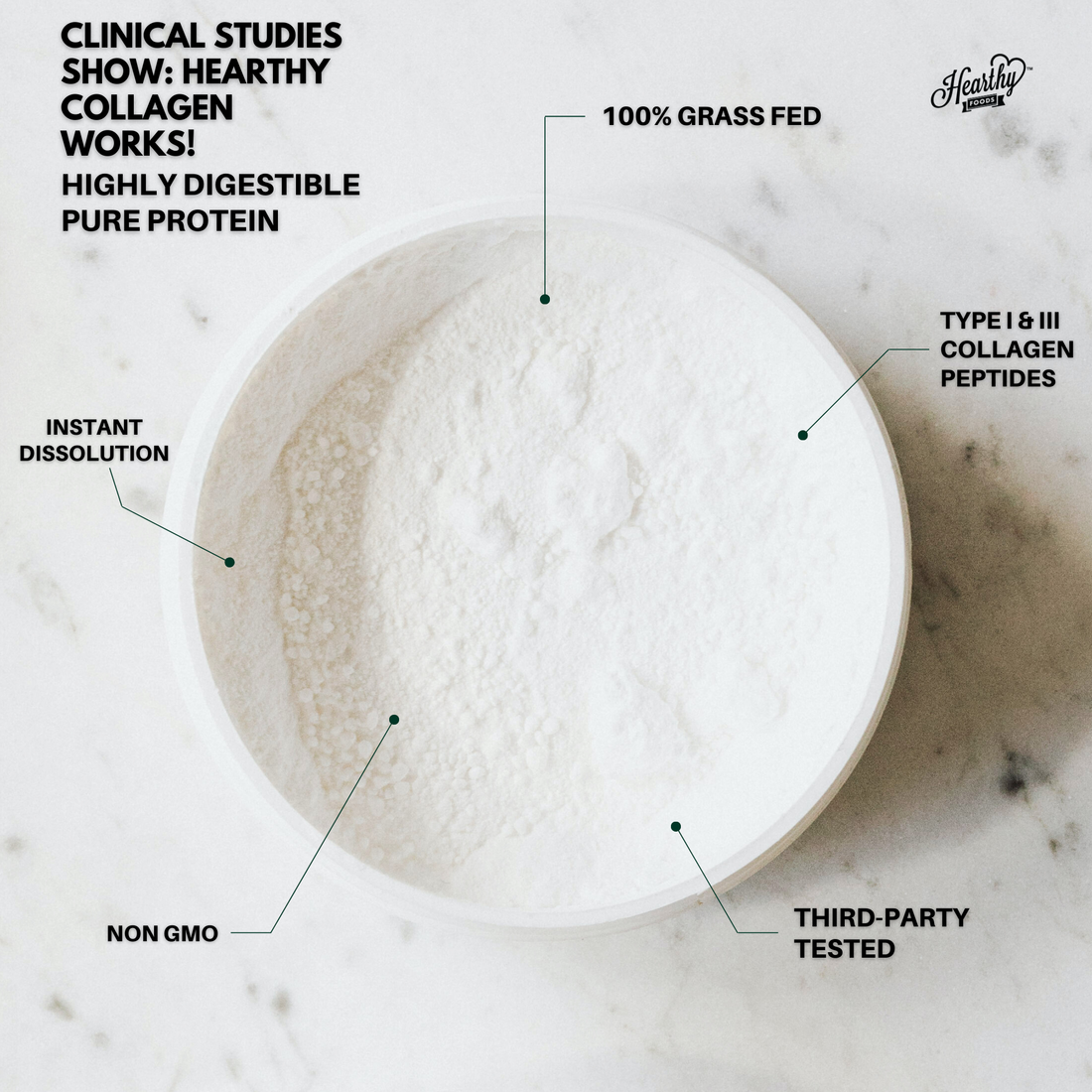
The Science Behind Healthy Aging with Hearthy Collagen
Staying physically active and mentally fit Hearthy Collagen
In the clinical trial funded by PB Leiner, a research team at Florida State University found that Hearthy Collagen supplementation not only helps to relieve joint pain for active middle-aged adults and increases their daily living activities but it now also has a proven effect on their mental well-being.
PHYSICAL EXERCISE NURTURES HOLISTIC HEALTH
Across the globe, healthcare tendencies are shifting from a curative approach to a holistic take on well-being, with consumers not only working on their physical fitness but also carefully tending to their mental and emotional well-being. Especially among Boomers and Gen X, the desire to feel well and age gracefully are top drivers behind pursuing a healthier lifestyle, and this also applies among Gen Z and Millennial consumers. Being physically active is closely linked to mental well-being in people’s minds: when asked about the steps they had taken over the past 12 months to improve mental and/or emotional well-being.

PAIN AND DISCOMFORT HINDER MIDDLE- AGED ADULTS IN THEIR PHYSICAL ACTIVITY
At the same time, joint health is a major concern for active adults worldwide. Research shows that 93% of those aged between 45 and 59 years have concerns
about joint and muscle pain, with two-thirds stating it has a moderate to severe impact on their health.
This leaves the category of the active middle-aged population in something of a catch-22 situation: they want to exercise - 87% of middle-aged adults think
that exercising or improving physical fitness is (very) important to create a feeling of well-being or wellness - but they also apprehend exercising. In fact, over half of people aged 45 years+ reported having stopped or reduced exercise due to joint pain.

THE ROLE OF COLLAGEN IN JOINT HEALTH, HEALTHY AGING, AND WELL-BEING
Aging is accompanied by declines in physiological processes related to tissue regeneration in skin, muscle, connective tissue, and bones. The degeneration of
these tissues commonly results in decreased physical function, injury, and subsequent long-term pain and disability. Joint pain is a remarkably widespread
issue among middle-aged people throughout the world with increasing prevalence in active and aging populations. Pain can limit physical activities and daily living activities, resulting in declining mental and social health.
Collagen is the most abundant protein in the human body and it is a major component of tendons and ligaments that, unfortunately, breaks down disproportionately with age compared to muscle tissue and bones. The onset of age-related losses of collagen begins as early as the second to third decade of life, with a decrease of approximately 1% per year after age 40. This can cause a loss of up to 75% of total body collagen by the age of 80. In addition, collagen loss, especially in tissues that are subjected to the greatest forces (e.g. tendons and ligaments), may result in connective tissue impairments and injury.
Although physical activity is largely recommended to improve health and prevent age-related declines in body tissue, the prevalence of chronic pain increases
with age and activity level. Those who experience pain tend to exhibit pain-avoidant behaviors, which result in reduced physical activity that can also, in
turn, prompt pain. This creates a cycle of physical activity restriction that can lead to increased disability and decreased participation in sports, as well as
impairments in daily living activities. Furthermore, pain, as well as pain-avoidant behaviors, can diminish the quality of life and adversely affect mental, social,
and economic determinants of health, especially in aging active populations.
Clinical study: Hearthy Foods Collagen significantly reduces joint pain & improves mental well-being of the active middle-aged population.
Studies have shown that collagen can reduce joint pain among those suffering from conditions such as osteoarthritis as well as joint stability problems, injured
joints, or exercise-induced issues. However, no previous research has proven the long-term impact of collagen on both joint pain and everyday activities, as well as
mental well-being in the healthy and active middle-aged population.
Recognizing the vast number of people in this demographic, PB Leiner collaborated with Florida State University (FSU) to carry out a randomized,
double-blind, placebo-controlled clinical trial to determine whether Hearthy foods collagen peptides could improve their experiences with joint pain and discomfort. This is the first study of its kind to research this demographic: healthy active middle-aged adults without specific pathology, but suffering from joint and/or musculoskeletal pain. It is also the only study to have measured mental well-being combined with physical pain relief provided by collagen peptides.
The study participants (n=75 males and females) were all aged between 40 and 65, exercised at least 3-4 hours per week, and were not suffering from osteoarthritis or joint injuries, and reported having periodic but sustained/chronic joint and/or musculoskeletal pain. Over the course of nine months, each participant consumed either a placebo or 5 g Hearthy Foods collagen peptides twice daily (one in the morning and one in the evening) and their progress was assessed according to the Knee Injury & Osteoarthritis Outcome Score (KOOS)
and Veterans Rand 12 Item Health Survey (VR-12). Higher scores indicated reductions in pain and improvements in the ability to carry out everyday activities, and mental well-being. Importantly, no adverse effects were self-reported by
participants in any of the treatment groups during the study participation. Therefore, the Hearthy Foods collagen peptides supplement was found to be safe and well tolerated.
REDUCED JOINT PAIN
The research showed significant improvements with SOLUGEL®. Those consuming 10 g per day of SOLUGEL® collagen peptides saw an improvement
according to the Knee Injury and Osteoarthritis Outcome Score, indicating significant reductions in pain and improvements in knee functionality. Pain is a major limiter of physical activity and daily living activities for everyone, contributing to lower well-being and increased disease risks. The pain score evaluates the degree of joint pain and functionality of the knee in the movements experienced by the participants. As shown in figure 1, a daily Hearthy Foods intake for 6
months resulted in statistically significant reduced joint pain scores in more frequent exercisers compared to the placebo group (*p<0.05). Furthermore, pain scores worsened in the placebo group during this time period.
The meaning of pain score change is further calculated to reveal the clinical importance. Even the smallest increases in clinical importance would allow participants to feel the ease of pain, leading to improved well-being. Furthermore, Hearthy Foods collagen intake resulted in 36% of participants with a clinically
meaningful improvement in pain scores. Meanwhile, as many as 50% of participants in the placebo group had worse clinically meaningful pain scores.

DAILY LIVING ACTIVITIES INCREASED
The study also found that collagen peptides may increase the number of activities of daily living (ADL), involving everyday activities such as commuting, cleaning, shopping, etc. One-third of those participating who consumed 10 g of Hearthy Foods Collagen each day saw meaningful improvements in their scores while undertaking such activities. Conversely, none of the participants in the placebo group saw any improvements.
The capability to remain independent in daily activities is crucial for active adults. The improvement of the ADL score indicates better independence in terms of daily
activities. As shown in figure 2, Hearthy Foods Collagen intake for 6 months resulted in statistically significant improved ADL scores compared to the placebo group (*p<0.05) while the placebo group saw no improvements. Even the smallest increases in clinical importance would allow participants to feel the improvements in their daily activities, leading to more independence and mobility. Thus, the meaning of the ADL score change is further calculated to reveal the clinical importance. Hearthy Foods Collagen intake resulted in 32% of participants with a clinically meaningful improvement in ADL scores, while none of the participants in the placebo group experienced significant improvements.

IMPROVED MENTAL WELL-BEING
This is the first study to examine the effects of collagen peptide supplementation on The Veterans RAND 12 Item Health Survey (VR-12) and to also find significant
mood improvements with the supplementation. The study found that Hearthy Foods collagen peptides improved the mental health scores. Conversely, none
of the participants in the placebo group saw any improvement. As a result of this unique study, there is now clinical evidence proving the ability of collagen to help
reduce joint pain over the long term among healthy and active middle-aged people. The Veterans RAND 12 Item Health Survey (VR-12) is a self-report survey that is used to measure well-being and health-related quality of life. The mental health part of the questionnaire included function limitations due to emotional problems, bodily pain, energy fatigue, social functioning, and mental well-being. An intake of 10 g/day Hearthy Foods Collagen resulted in a significant 8% higher mental components score after 3 months with continued improvements over time (9.3% after 6 months) in middle-aged active adults experiencing joint discomfort compared to the placebo. As shown in figure 3, the daily SOLUGEL®
intake for 3 months resulted in statistically significant improved mental health scores compared to the placebo group (*p<0.05). Meanwhile, the placebo
group saw no improvements.

HEARTHY FOODS COLLAGEN PEPTIDES
Hearthy Foods collagen can provide a clinically proven solution across a wide range of applications for the target population. Obtained from natural animal sources, it is a highly digestible pure protein that is composed of high-quality collagen peptides.
To find out more about the possibilities offered by Hearthy Foods Collagen, please get in touch with us at online@hearthyfoods.com or visit www.hearthyfoods.com

